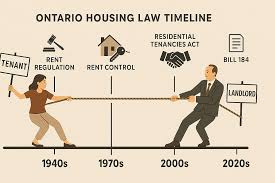Conducting a background check on potential residential tenants is one of the most important steps a landlord can take to protect their property, finances, and peace of mind. While an applicant may appear friendly and trustworthy, a thorough background check provides objective information that helps landlords make informed and responsible decisions.
A background check typically includes reviewing an applicant’s credit history, criminal record, rental history, and employment verification. Each of these elements offers valuable insight. For example, a good credit score and history of on-time payments suggest financial responsibility, while negative marks may indicate a risk of late rent or default. Companies that offer background checks include Equifax (https://www.equifax.ca) or Creditcheckcanada.ca (https://creditcheckcanada.ca) to name a few.
Checking a tenant’s rental history helps reveal how they’ve treated previous properties. Speaking with past landlords can highlight issues like missed payments, property damage, or rule violations. Similarly, verifying employment and income ensures that the applicant has the financial stability to meet monthly rent obligations.
In some cases, a criminal background check may be appropriate, depending on local laws and regulations. While this must be approached carefully and without discrimination, it can be useful for identifying past behavior that may pose a risk to property or other tenants.
Failing to screen tenants properly can result in significant consequences: missed rent, costly evictions, property damage, or legal disputes. On the other hand, a thorough background check helps landlords select responsible, reliable tenants who are more likely to pay on time, follow rules, and respect the property.
Ultimately, tenant background checks are not about being overly cautious—they are about due diligence. They protect your investment, reduce turnover, and create a safer and more stable rental environment. When done legally and fairly, they benefit both landlords and tenants by laying the foundation for a respectful and successful rental relationship.
Search
Categories
Recent posts
Tags
- a louer
- affordable apartments Toronto
- affordable housing
- affordable housing solutions Canada
- Air Filters
- air quality
- apartment
- apartment close to public transport
- apartment for rent
- apartment for rent montreal
- apartment for rent Toronto
- apartment insurance
- appartement
- appliances
- ARTICLE
- available for rent
- background check
- bacteria
- best city to live in canada
- best healthcare
- bicycle
- bicycle path
- bike lane
- bike path
- bikes
- bill 16
- burglar
- buy a house
- buying a house
- carbon monoxide detector
- cars
- centris
- city
- cleaning
- cleaning products
- cleaning wood floors
- closet
- closet space
- clothing organizer
- compact rental units
- condo
- condo association laws
- condo fees
- condo for rent
- condo insurance
- construction budget
- construction contractors
- construction cost
- credit check
- decorating room
- digital transaction
- door lock
- doors
- downtown micro apartments
- electricity
- employment verification
- energy consumption
- energy cost
- energy saving
- engineered hardwood
- fire alarm
- fire detector
- fire extinguisher
- floor
- flooring
- for rent
- For rent in Montreal
- For rent in Toronto
- For rent in Vancouver
- for sale
- furniture
- gas
- healthy candles
- healthy lifestyle
- home
- house
- house for rent
- house for sale
- house garden
- house insurance
- house locks
- house plants
- immigrant
- importance of water leak detector
- indoor plants
- insurance
- intergenerational home
- intergenerational living
- interior designer
- investment
- landlord
- lease
- lease responsibility
- long term care facility
- low crime
- mattress
- micro-apartments Vancouver
- micro-units Toronto
- mls
- move to canada
- moving company
- Moving to canada
- moving truck
- multigenerational home
- multiplex
- nano-suites
- nano-suites Toronto
- new apartment
- new color
- oil
- old age home
- online house purchase
- Ontario
- paint colors
- passive income
- pet friendly apartment
- pet friendly plants
- planning for vacation
- plants
- porcelain tile
- property
- questions for apartment rental
- real estate
- real estate agent
- real estate broker
- real estate online
- real estate transaction
- realtor
- renal history
- rent
- rent an apartment
- rent control
- rent obligations
- rental
- rental board
- rental scam
- renting
- residential income
- residential lease
- residential rental
- revenue property
- safe area
- safe candle in apartment
- safe candle in house
- safe candles
- safety
- scam
- security
- sell a house
- seniors residence
- small apartments Vancouver
- smoke detector
- social media and real estate
- soy candle
- soy candles made with essential oils
- storage space
- student apartment
- student housing
- tenant
- tiny rentals Canada
- traffic
- trending color
- trending paint
- university student rental
- ventilation
- vinyl floor
- water alarm
- water damage
- water leak detector
- window frame
- window manufacturer
- windows
- wood floors



